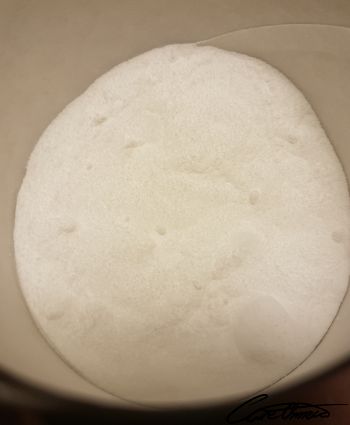What Is Calcium & What Foods Can I Find It In?

Calcium is an important major mineral for us that is critical for our health.
It is required for the maintenance of bone mineralization and for the functioning of the cardiovascular and nervous systems.
99% of the body’s calcium supply stores in the bones and teeth, where it supports their structure and function.
Your calcium intake and vitamin D intake are in correlation with each other.
Calcium absorption declines with age.
Table of Contents
Calcium Is An Important Mineral
Calcium is a mineral the body needs to maintain strong bones and to carry out many important functions.
The body also needs calcium for muscles to move and for nerves to carry messages between the brain and every body part. (source ◳)
Calcium is a vital component in the human body and critical for our health.
Researched-backed benefits from calcium can you read about in Calcium, Ca: 4 Research-Backed Benefits .
Calcium From Foods
Studies have pointed in the direction that dietary calcium may have more beneficial effects than calcium supplements. (source ◳)
Calcium intake in most diets comes from dairy products. Calcium absorption from dairy products does not depend on fat content. (source ◳)
Calcium Is Important At Any Age
Calcium absorption declines with age, starting after the age of 60. (source ◳)
It is a good idea to teach children early how to establish and maintain dietary habits that will ensure adequate calcium intake throughout their lifespan. (source ◳)
Calcium Correlates To Other Nutrients
There is a correlation between calcium and Vitamin D. A low calcium intake may worsen vitamin D deficiency. While a high calcium intake may have a vitamin D sparing effect. (source ◳)
High sodium intake is bad for calcium absorption. In combination with low calcium intake, it can result in disturbances in calcium metabolism and bone loss. (source ◳)
Foods You Can Find Calcium In
You find calcium mostly in baked goods, sweets, breakfast cereal, spices and herb products.
Examples of food sources include
Foods in our nutrition tool
You can find regularly updated, top ranked lists of foods for over 200+ nutrients in our nutrition tool.
If you are interested in what foods contain the most calcium, we recommend you visit our tool.
Here's our top ranked list of foods that contain Calcium, Ca.
Calcium Supplements
If you don't consume enough calcium from your food it might be necessary to supplement the diet with calcium in some form.
You can find calcium supplements with different active substances.
Calcium carbonate
Calcium carbonate is the most common form of calcium consumed in supplement form.
Calcium carbonate is poorly soluble and has a low bioavailability. Also, calcium carbonate has a very high density.
Side-effects of calcium carbonate in supplement form, can cause an upset stomach or diarrhea.
Calcium Citrate
Calcium citrate is more soluble and has a higher bioavailability than calcium carbonate.
Side effects of calcium citrate in supplement form, can cause loose stool.
Calcium Lactate
Calcium lactate is poorly soluble and has a low bioavailability.
Side effects of calcium lactate is that it has a low pH and tends to cause loose stool.

